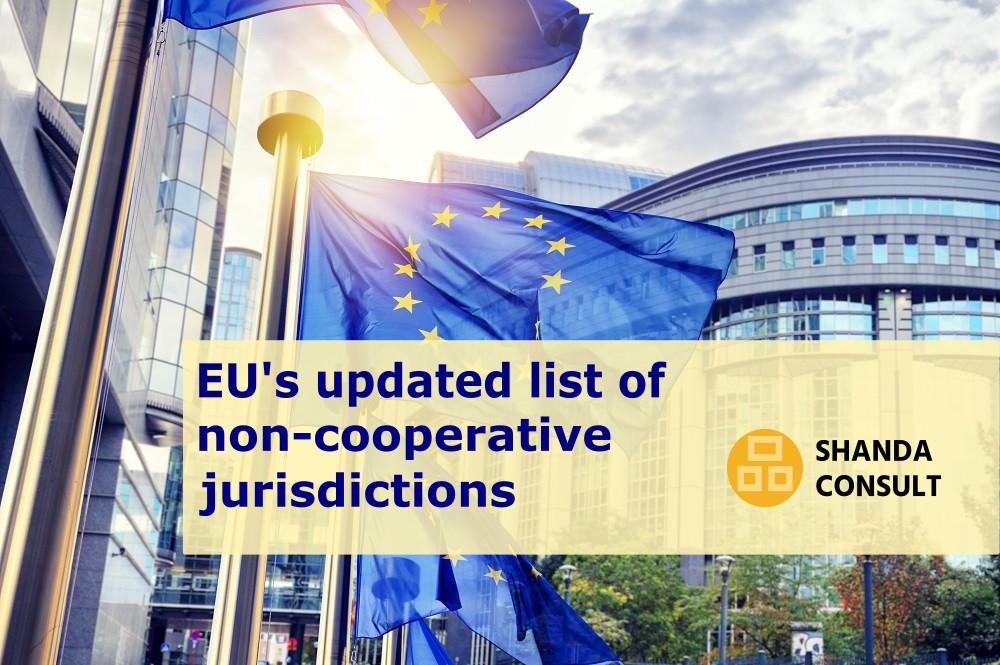EU’s updated blacklist of non-cooperative jurisdictions

The European Council decided to add Antigua and Barbuda, Belize, and Seychelles to the EU’s list of non-cooperative countries for taxation reasons.
Concurrently, this list has been updated to include the removal of the British Virgin Islands (BVI), Costa Rica, and the Marshall Islands.
Consequently, payments made to countries on this EU “blacklist” by EU companies (e.g. Cyprus) will be subject to withholding tax at the source.
Removal of BVI, Marshall Islands, Costa Rica
The countries listed in this EU list of non-cooperative tax jurisdictions are those that have either not participated in a productive discussion with the EU over tax governance or have not fulfilled their obligations to carry out the required regulative amendments. A set of objective requirements for excellent tax governance should be the goal of such changes, and they should include equitable taxation, tax transparency, and the application of international norms that guard against profit shifting and erosion of the tax base.
• Once the British Virgin Islands modified its framework for disclosing information upon request, they were removed from the list.
• The Marshall Islands were removed from the list due to significant progress in applying the economic substance criterion.
• Costa Rica was taken off the list due to changes made to its foreign source income exemption scheme that were deemed harmful.
Updated list: Non-cooperative countries as of 17 October 2023
1. American Samoa
2. Antigua and Barbuda
3. Anguilla
4. Bahamas
5. Belize
6. Fiji
7. Guam
8. Palau
9. Panama
10. Russia
11. Samoa
12. Seychelles
13. Trinidad and Tobago
14. Turks and Caicos Islands
15. US Virgin Islands
16. Vanuatu
Significant tax implications for Cyprus
While withholding taxes are generally not applied by Cyprus to payments made to non-Cypriot residents, there are some exceptions. These include payments made to companies in jurisdictions that are listed as non-cooperative by the EU; these include payments made by non-quoted companies to receive 17% of dividends, 30% of interest payments (excluding payments by individuals), and 10% on payments of royalties (excluding personal by individuals).
Since several jurisdictions were taken off the list, businesses in EU countries – including Cyprus – should now be able to pay dividends, interest, and royalties to these jurisdictions without having to worry about tax withholding at the source.
However, any payments to any country that is on the EU “blacklist” will be subject to the previously indicated rates of withholding tax.
For cases that are adversely affected by this development, it may be considered to either halt the actual payment (e.g. until there is a positive development) and/ or to change the jurisdiction of the beneficial shareholder of the Cypriot company to an alternative jurisdiction, for example via redomiciliation or via transfer of shares.
If this development has a negative impact on a case, it might be decided to either halt the payments altogether (for example, until a positive development occurs) or to transfer shares or redomiciliate the beneficial shareholder of the Cypriot company to a different jurisdiction.
Significant consequences for DAC6
The update to the list could affect DAC6 reporting, particularly in relation to the Hallmark and deductible cross-border payments if the receiver resides in a country on this EU list and is subject to taxation. Cypriot companies doing business with any of the recently mentioned jurisdictions would be well to think about the possible ramifications for DAC6 reporting.
For more information or assistance you may contact Shanda Consult Team directly!
.